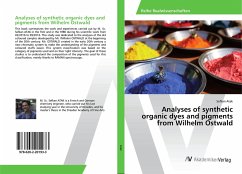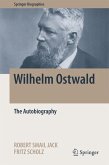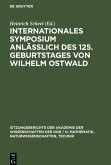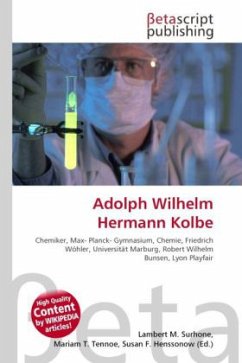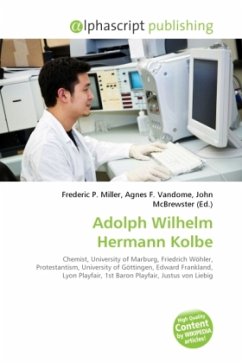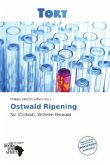Please note that the content of this book primarily consists of articles available from Wikipedia or other free sources online.Friedrich Wilhelm Ostwald (Latvian: Vilhelms Ostvalds; 2 September 1853 4 April 1932) was a Baltic German chemist. He received the Nobel Prize in Chemistry in 1909 for his work on catalysis, chemical equilibria and reaction velocities. Ostwald, Jacobus Henricus van ''t Hoff, and Svante Arrhenius are usually credited with being the modern founders of the field of physical chemistry.Ostwald was born ethnically Baltic German in Riga, to master-cooper Gottfried Wilhelm Ostwald (1824-1903) and Elisabeth Leuckel (1824-1903). He was the middle of two brothers, Eugen (1851-1932) and Gottfried (1855-1918). Ostwald graduated from the University of Tartu, Estonia, in 1875, received his Ph.D. there in 1878 under the guidance of Carl Schmidt, and taught at Tartu from 1875 to 1881 and at Riga Polytechnicum from 1881 to 1887.
Bitte wählen Sie Ihr Anliegen aus.
Rechnungen
Retourenschein anfordern
Bestellstatus
Storno


